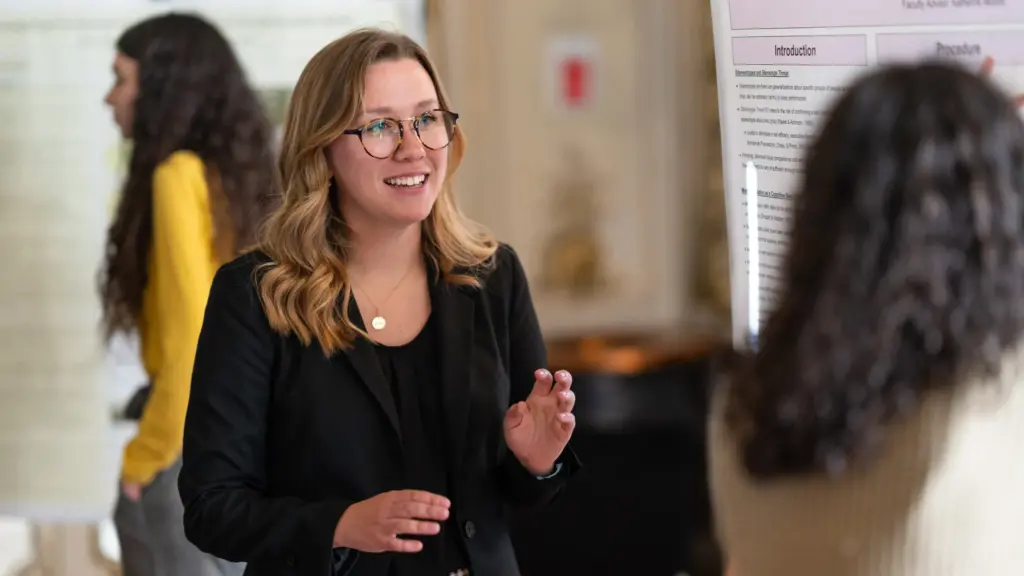Overview
- Degree Level
- Undergraduate
- Degrees Offered
- Bachelor of Arts
- Department
- Psychology Department
- school/college
- College of Arts and Sciences

Psychology is the study of mind and behavior. While pursuing a Bachelor of Arts in Psychology at Arcadia University, you will explore what motivates people’s thoughts and behavior and understand how this applies to interactions in our everyday lives. Arcadia’s research-based psychology major gives you all the practical skills that employers in professional settings value—working in teams, project management, facility with data and software applications, technical report writing, and public presentations. A degree in psychology opens doors to over 280 job opportunities and many graduate school possibilities.
You will have unmatched opportunities at Arcadia to collect and evaluate your own evidence through our research-based program which can be customized to your goals and interests.
You are taught to think quantitatively, analytically, and independently about psychological concepts and stand out from others with these unique opportunities:
Learn more about the Psychology Course of Study.
Arcadia's flexible Psychology program offers multiple ways to tailor the program to suit your professional and educational goals. In addition to the study tracks and accelerated degree, you may also consider the Art Therapy Emphasis, a Secondary Education Certification, and preferential admission into Arcadia's Master of Arts in Counseling Program.
Required Course
How do we learn? Study of the facts, principles and theories associated with basic learning and cognitive phenomena, including human and animal learning, cognition, and memory.
In the lab part of this course you'll work in small groups to train a rat using the principles of learning from lecture.
Elective Course
Want to know how biological, social, and psychological factors influence health and illness? Check out this introduction to the basic principles, research findings, practical applications, and important issues in the field of health psychology and what this means in your everyday life.
Excellent elective for Pre-PT, Pre-OT, Pre-PA, Medical school, and Nursing programs.
Elective Course
How does culture influence our behavior? Learn about how psychological theory and research can help us understand human behavior from different global cultural regions and ethnic backgrounds. Take this course and fully appreciate human diversity in the world today.
Learn about the psychology of different cultures before you study abroad.
Required Course
Want to learn how your brain works? Study of the biological bases of behavior which includes facts, principles, and theories associated with behavioral genetics, the neuron, and the brain.
In the lab, you'll design and conduct original research projects in small groups.
Required Course
How do we interact with other people in social situations? In this course you will learn about conformity, social norms, obedience, attitudes, person perception, aggression, love, conflict resolution, and much more.
Emphasis on justice, equity and diversity. In the lab, you'll design and conduct original research projects in small groups.
Elective Course
What’s it like to grow up Black? Explore the developmental experience of the black child in the US today with special attention on the social and cultural factors uniquely affecting their physical, cognitive, emotional, and social development.
Really explores what it means to grown up Black. Emphasis on justice, equity, diversity, and inclusion.
Kayla worked with her professors to answer her own questions with experiments. Her research experience at Arcadia earned her a place in a PhD program and set her on her path to becoming a research psychologist.
